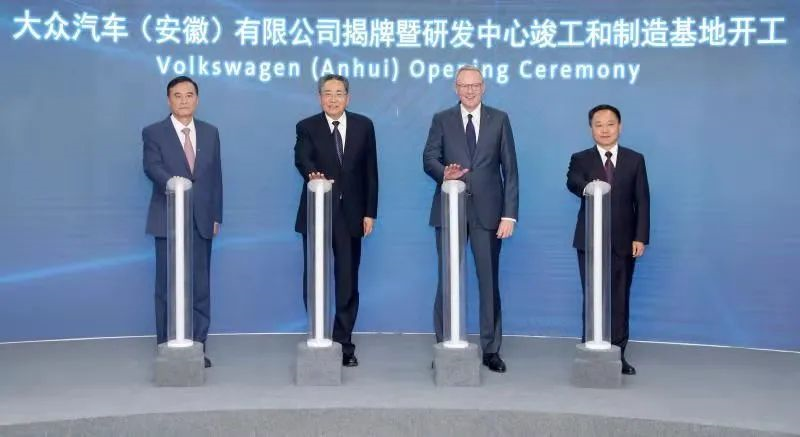Volkswagen inaugurates R&D hub in Hefei for China e-mobility offensive
Shanghai (ZXZC)- On December 8, Volkswagen Group saw the inauguration of a new R&D center at its facilities in Hefei, indicating that Anhui province is to advance into a new center of competence and e-mobility hub for the German auto giant in China.

Photo credit: JAC Motors
Earlier this month, the joint venture JAC Volkswagen was renamed as Volkswagen (Anhui) Automotive Company Limited. With a 75% stake in the joint venture, Volkswagen takes over management control at Volkswagen (Anhui).
The joint venture's future products will ride on Volkswagen's Modular Electric Drive Matrix (MEB) platform with the aim of improving local R&D competence in the localization of MEB-base derivatives and capitalizing on global synergies, according to the German automaker. The first vehicle is expected to roll off the assembly line in 2023.
“Over the next three years, we expect state-of-the-art MEB production, a new full-electric portfolio and technology solutions from the R&D center in Anhui. Volkswagen (Anhui) will strengthen China's role in the electrification and digitalization of the Volkswagen Group,” said Dr. Herbert Diess, CEO of Volkswagen AG.
With 20 billion yuan ($3.065 billion yuan) to be plowed, Volkswagen Anhui plans to construct the second phase of the R&D hub and renovate manufacturing workshops, which are anticipated to be completed at the end of 2022 and able to output up to 350,000 new energy vehicles (NEVs) annually. Moreover, a group of 500 experts will be formed before 2025 and a digital center will be set up in Hefei to provide IoV (Internet of Vehicles) and digital services for the joint venture's NEV products.
Volkswagen has set a goal of selling 1.5 million new energy vehicles per year in China by 2025. Earlier this month, Volkswagen raised its stake to 75% from 50% in the joint venture, according to a deal the two sides signed in May. The move has made it the first global automaker to have a controlling stake in a Chinese partnership.

